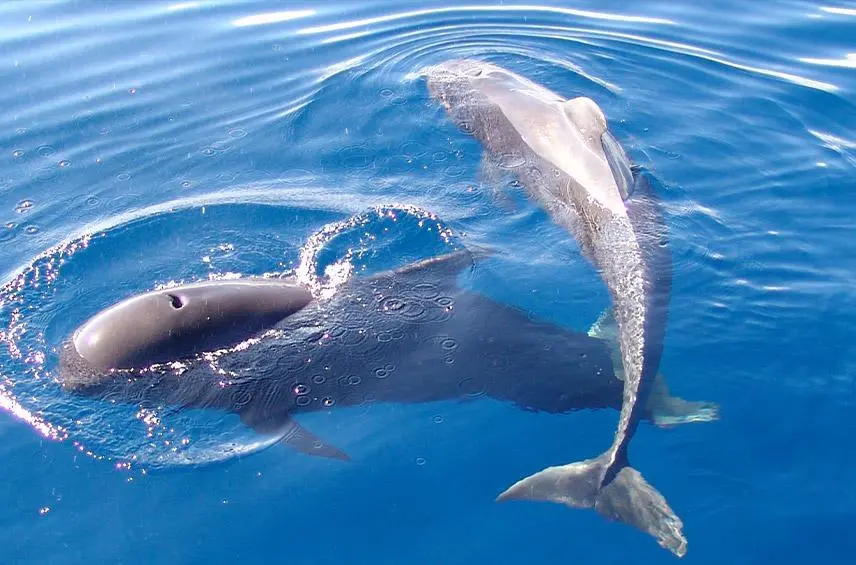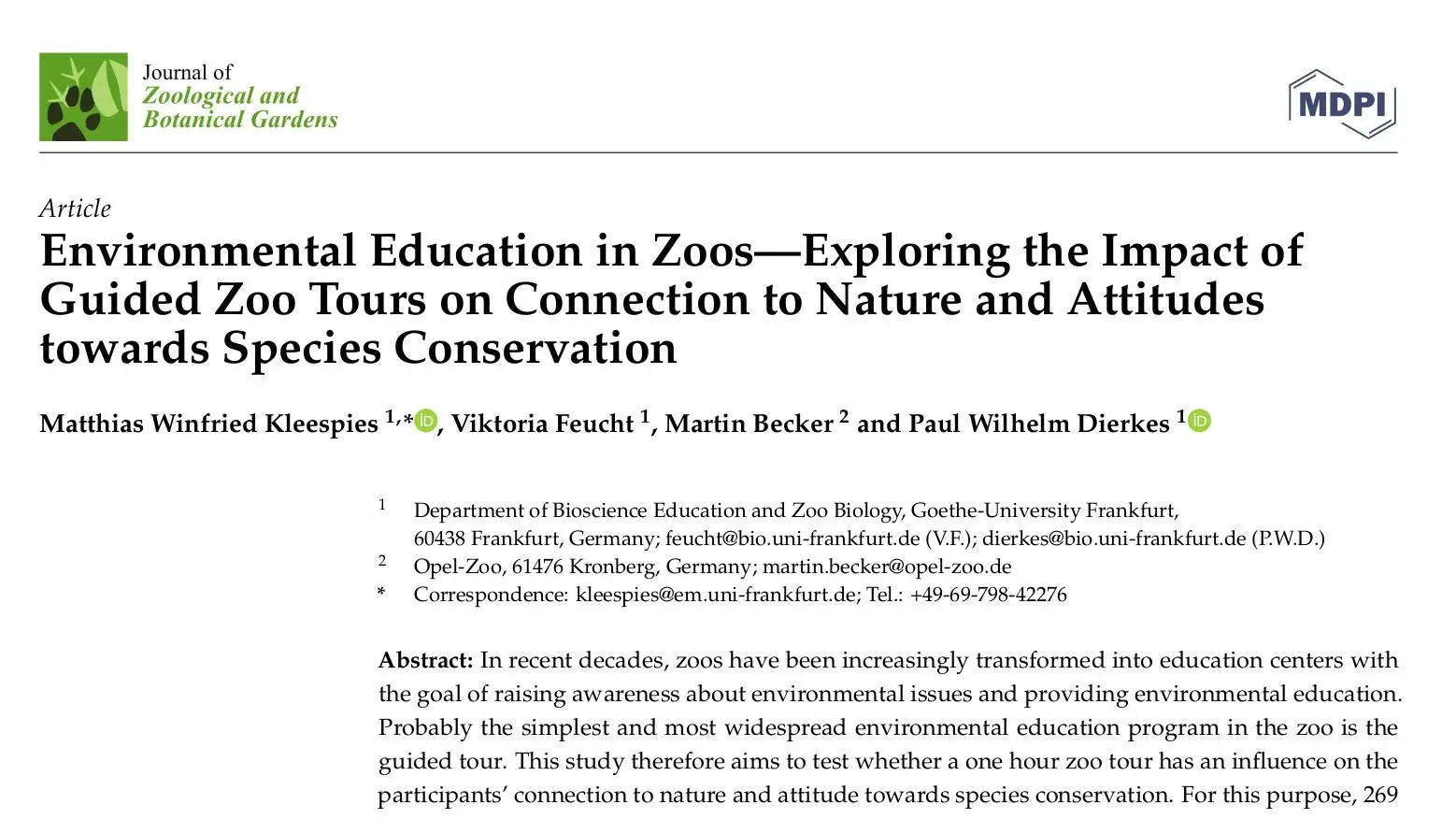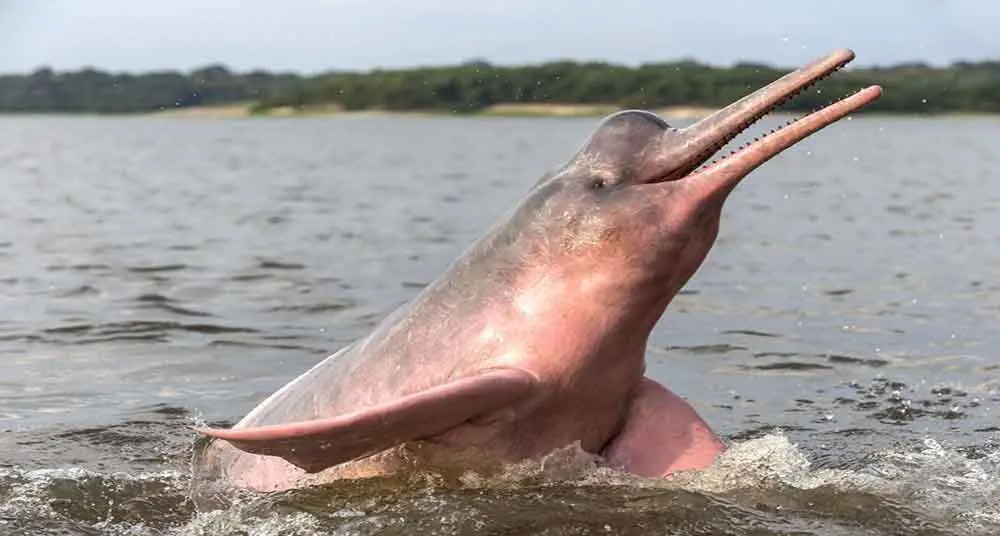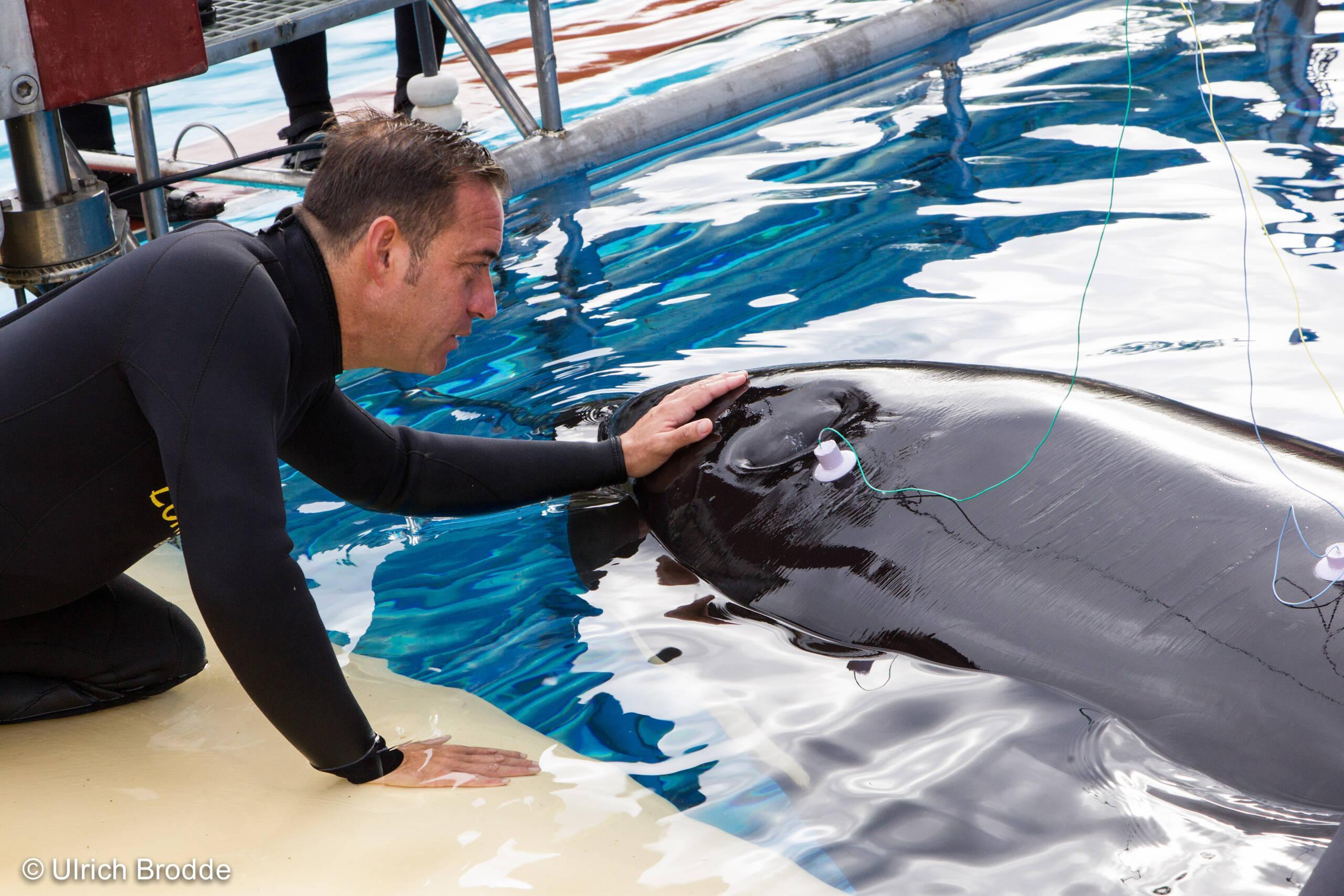
| Category | Completed |
| Date | 1993 |
| Investment | 45.000$ |
LPF has financed several projects for the research and conservation of pilot whale populations in the Canary Islands. For example, the development of a warning system to prevent strandings on beaches.

Short-finned pilot whale, Canary Islands
Short-finned pilot whales are odontocete cetaceans, i.e., they have jaws with teeth, like dolphins or killer whales. Pilot whales can be found in warm temperate and tropical waters, usually in deep offshore areas. Although this species is generally nomadic, there are populations such as the one in the Canary Islands, which are resident. This peculiarity is due to the islands’ oceanic nature, which, because of their geology, allows them to reach great depths just a few kilometres off the coast, where these animals find their main food, cephalopods, such as squid.
Although in the past these animals were captured for consumption, especially the Japanese populations, which has led to a decrease in numbers, nowadays intentional capture is not their main threat. As for other cetaceans, pollution from plastic rubbish, contaminants and noise are the greatest threats to their health and populations. In places like the Canary Islands, where pilot whale populations are resident, there is also the danger associated with intense maritime traffic between islands and the impact of unregulated whale-watching activities.
Loro Parque Fundación has collaborated in several projects focused on the islands’ populations, especially in the south of Tenerife. The aim is to increase scientific knowledge about their social structure, to establish databases of individuals through photo-identification and censuses, to study the use of space and to monitor the animals’ interaction with maritime traffic.
Loro Parque Fundación also designed a warning device for pilot whales aimed at preventing strandings in bays and on shallow beaches using an acoustic warning system. For this purpose, 86 experiments were carried out on the coast of Tenerife to study how pilot whales reacted to different sounds, the results of which are expected to be replicated in different pilot whale populations to prevent future strandings.
BLOG
News





